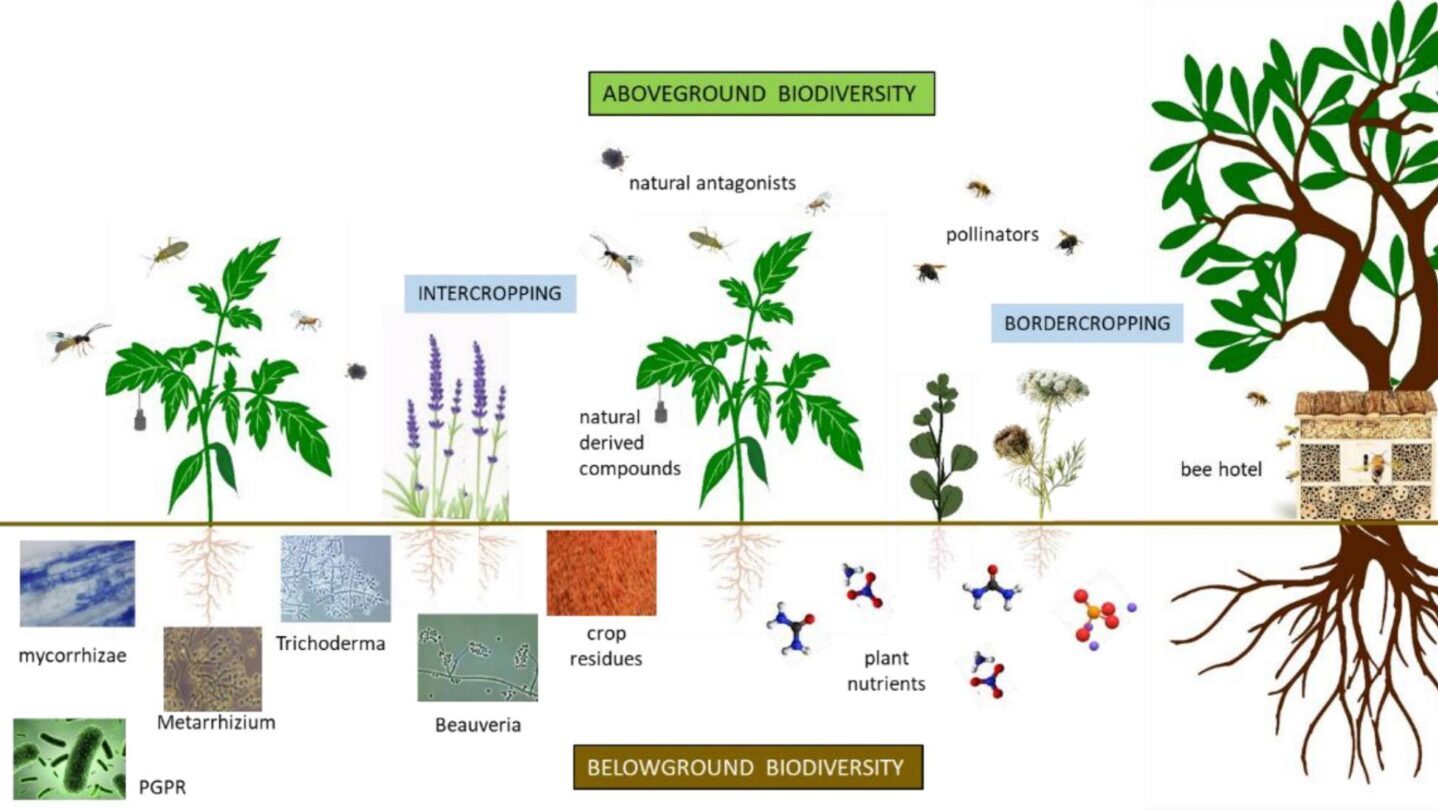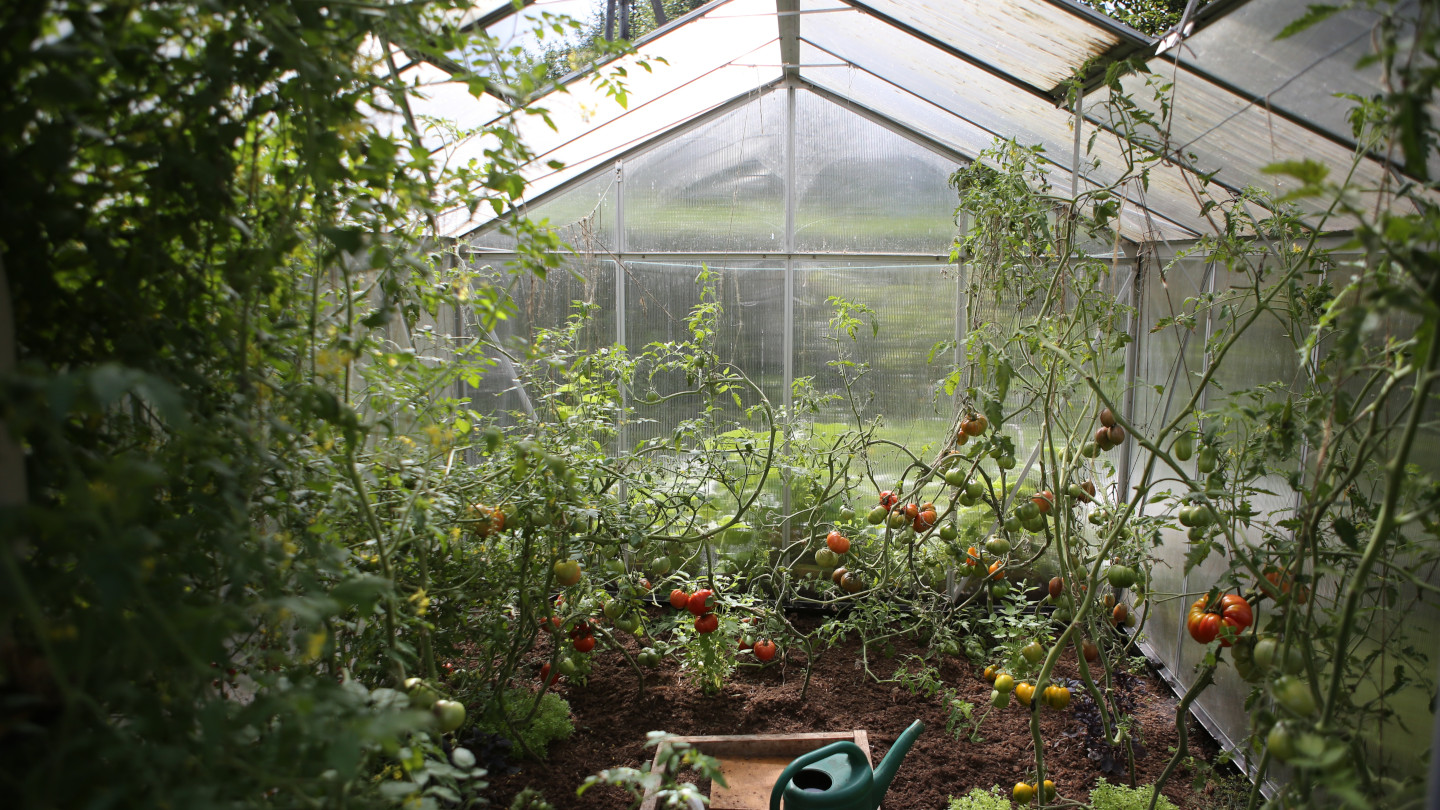ABOUT THE PRIMA PROJECT
Agroecology-inspired Strategies and Tools to Enhance Resilience and ecosystem services in tomato crop
The project ASTER relates to call Section 2 -Thematic Area 2: Farming systems -Multitopics 2021 Topic 2.2.1: Up-scaling field practices based on agroecological practices to increase ecosystem services and biodiversity, to adapt the mall farming systems to climate change and to increase farmers incomes. It addresses key aspects of the sustainable management of small tomato farms through the adoption of an agroecology approach based on the protection conservation) and the enhancement of functional biodiversity, aboveground and belowground, to increase and exploit the ecosystem services related to plant protection, plant nutrition and pollination, particularly in water-limited environments, where smallholder farmers of Mediterranean Basin live. The adoption of ASTER results will enhance farmers’ chances of increasing yield, yield stability, profit and profit stability through an efficient exploitation of functional biodiversity and a profitable use of crop residues resulting in a consistent reduction of external inputs (fertilizers, pesticides, herbicides, water).
Objectives

The aim of ASTER is to build up a management model for small tomato producers of the Mediterranean Basin based on the application of main agroecology principles such as: (i) the protection (conservation) and the enhancement of functional biodiversity both above and belowground, to increase and exploit the ecosystem services (protection, nutrition, pollination) in alternative to the use of external synthetic inputs; (ii) the sustainable control of main pests and pathogens to reduce the environmental impact of plant protection practices; (iii) the circularity of the production chain to approach the “zero waste” objective. The model will improve the resilience of this fundamental crop in the economy of all Mediterranean Basin countries where …
Concept

Tomato is a key crop all over the world but particularly in the Mediterranean Basin. Its market value in EU represents about 7 billion euro. Italy, Spain, Greece and Portugal contribute with over 90% to EU production. Turkey is the fourth largest tomato producer after China, India and the United States, yielding more than 7.2% of the world tomato production equal to ~ 12.7 million tons in 2017. In the north of Africa tomato is a main crop in Morocco (ranked the fifth largest tomato producer in the world) and in Tunisia (30.000 ha with an annual production of about 1.357.621 tons) whilst it is in constant expansion in Algeria (1.3 million tons, 18th largest producer in the world). ASTER groups together ALL these main …
Methodology

ASTER consortium in the different regions/countries will keep a balance in the sex and/or gender of the stakeholders that will be included in the socioeconomic analysis and tailor communication channels and information material based on their specific needs. For field activities, ASTER partners will be supported by local stakeholders (see stakeholder list below at pag. 10). For method details, please see relative WP descriptions. 1. Coordination and Management – WP leader: Emilio Guerrieri (P1) – Participant: ALL. This WP will cover all the relevant coordination and management tasks. It includes: organizing kick off, annual, final and on-demand meetings preferring as much as possible web platforms to contribute to the reduction of costs;
Implementation
ASTER is organised in 6 Work Packages:
WP1 – coordination and management
WP2 – characterization and enhancement of belowground biodiversity
WP3 – characterization and enhancement of aboveground biodiversity
WP4 – characterization of natural derived compounds (WP4)
WP5 – implementation of sustainable management methods
WP6 – uptake, dissemination and formation
All WP are managed by project coordinator and a WP leader. When needed the WP is divided into specific tasks (each referring to a task leader).
Management

The project coordinator is Dr Emilio Guerrieri (EG) of the CNR that has a wide scientific expertise in: aboveground-belowground interaction among root symbionts, plant, insect pests, natural antagonists; integrative characterization of Hymenoptera; sustainable control of tomato pests. EG had successfully coordinated international (FP7), national, regional and local projects. EG represents the consortium in all relationships with external entities including PRIMA committee. EG is responsible for the adherence of research activities and reports (scientific, financial) to the plan submitted. EG will be responsible for the consortium agreement, contract fulfilment and for the delivery of project results on time…
Consortium

The ASTER project is composed by a large consortium, involving 15 Partners and Research Institutions placed around the Mediterranean Sea.

